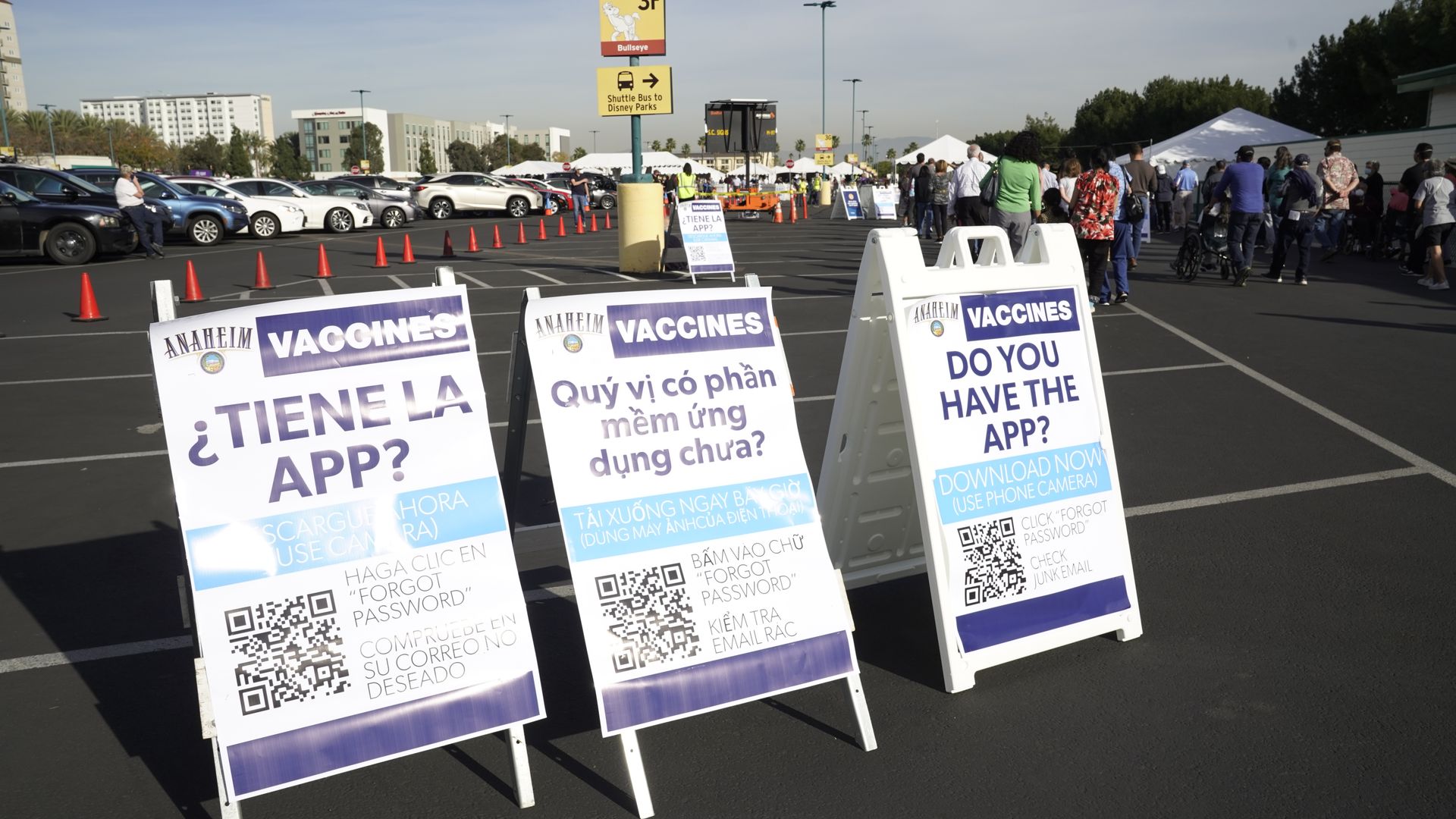Apr 21, 2022 - Politics & Policy
California launches chatbot to combat COVID misinformation in Spanish
Add Axios as your preferred source to
see more of our stories on Google.

English, Spanish, and Vietnamese-language signage at a Covid-19 vaccination site at Disneyland in Anaheim, California, in Jan. 2021. Photo: Bing Guan/Bloomberg via Getty Images
